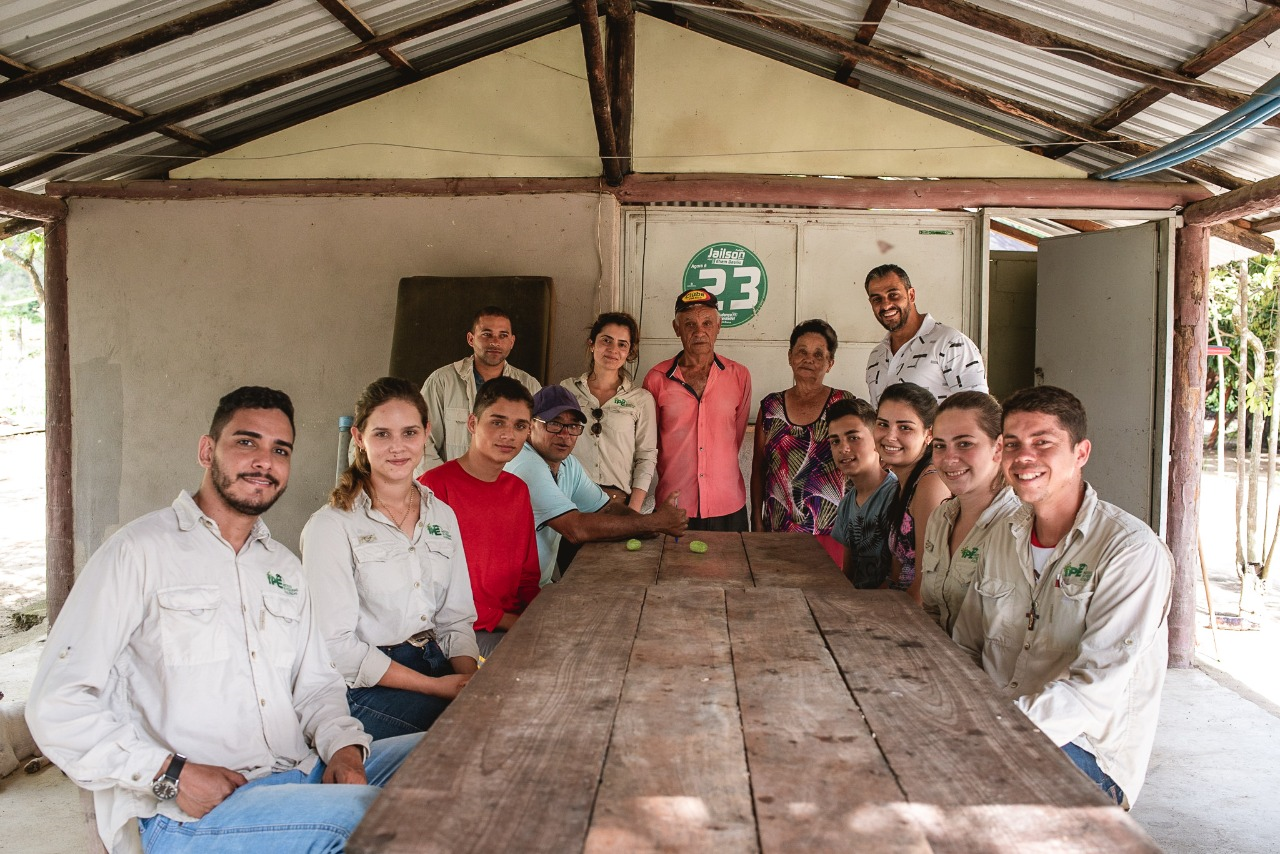Sustainable rural production actions will also be carried out in settlements in the municipalities of Alto Rio Novo and Águia Branca
The Renova Foundation, in partnership with IPÊ – Ecological Research Institute, is developing forest restoration actions in Permanent Preservation Areas (APPs) and water recharge in the Doce River Basin. The project “Education as an Agent of Change: Agroecology, Participation and Sustainability for Rural Settlements and Institutions in the Doce River Basin” will be carried out over two years, with approximately 140 families from the Rosa de Saron, Boa Esperança, Beija-flor and Laje settlements, located in the municipalities of Alto Rio Novo and Águia Branca, in Espírito Santo.
Around R$3.9 million will be allocated to carry out the activities, which include participatory technical assistance for families, assistance in the elaboration of strategies and alternatives for sustainable rural development and improvement of the quality of life of the local community. In addition, topics such as landscape restoration and conservation of natural resources will be addressed with the participation of regional partners.
Community
According to Vanessa Silveira, who is technically responsible for environmental education and project communication at IPÊ, community engagement and involvement strategies are developed through integration with families and local partners. The activities seek to make them protagonists in the processes of socio-environmental transformation so that they can take ownership of knowledge and decision-making. “This methodology implies strengthening the identity and ownership of the local community so that families can identify themselves as fundamental actors in environmental preservation and re-signification of their daily practices”, he says.
The strategies built collectively enable actions that promote the restoration of the landscape, conservation of water resources and improvements in the quality of life.
For Vanessa, the interest on the part of the local community in restoring their areas is noticeable, both by the settlers and by the local partners. “Community involvement is happening in a very assertive way. Community leaders build strategies together with the team and are engaged in carrying out the actions. There is great expectation for greater intervention within the settlements and on the properties involved”, she comments.
Partnership
The establishment of partnerships makes it possible to strengthen actions for expansion and future interventions in the territory. According to Antônio Sérgio Cardoso Filho, Sustainable Development analyst at the Renova Foundation, the partnership between the Renova Foundation and IPÊ goes beyond operational support. “It is participatory technical assistance work so that technicians can identify local potential and listen to landowners about their cultivation history, skills and aspirations”, he says. In addition to a current X-ray of land use in these locations, the partnership will expand the level of training so that the areas become Demonstration Units. “The idea is to bring models of Agroforestry Systems (SAFs) that can be applied in other areas of the Doce River Basin”, he comments.
Officially founded in 1992, the Ecological Research Institute is considered one of the largest NGOs in Brazil. Based in Nazaré Paulista, in São Paulo, it has more than 100 professionals working on more than 30 projects a year, in the biomes of the Atlantic Forest, the Amazon, the Pantanal and the Cerrado. In 1996, the Institute created the CBBC – Brazilian Center for Conservation Biology, for short courses, which evolved, in 2006, into the ESCAS – School of Environmental Conservation and Sustainability, offering a Professional Master’s and Post-Graduate course. IPÊ is responsible for planting almost 6 million trees in the Atlantic Forest and benefits more than 200 people with sustainable production alternatives. In addition, its scientific research directly benefits six species of fauna.

